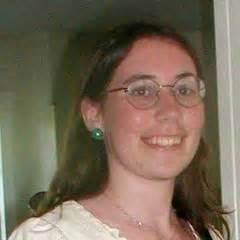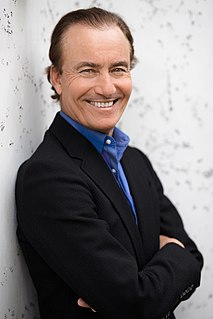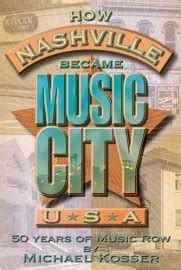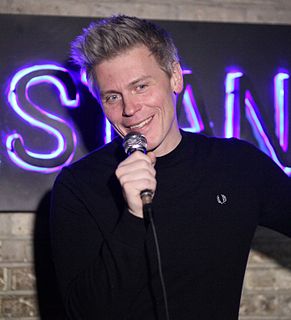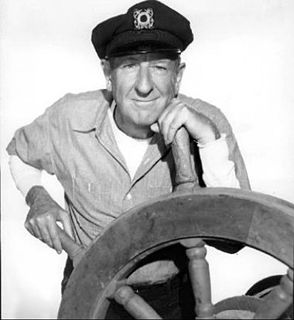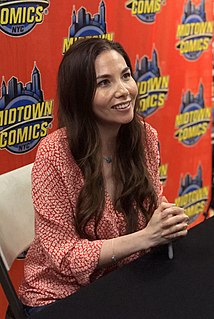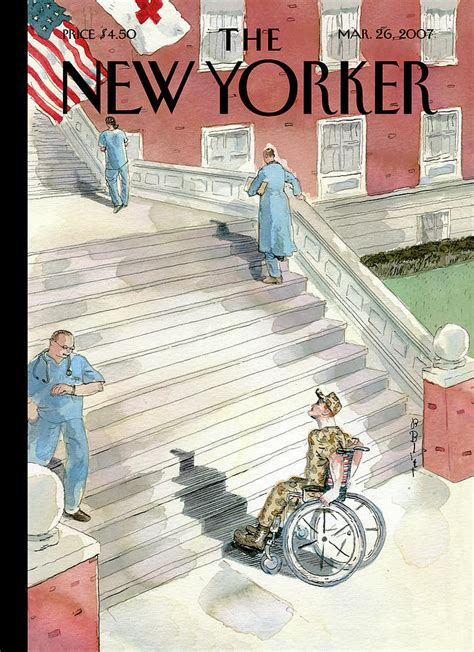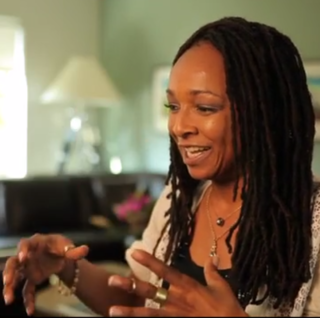Top 995 Desktop Publishing Quotes & Sayings - Page 17
Explore popular Desktop Publishing quotes.
Last updated on December 4, 2024.
Once we realized that there were these 25 invariable types - the class politician, the frigid popular girl, the kid who tags along behind the jocks - once we came up with these key characters in a cloud of marijuana, the whole thing just came together. One of the things I'm really proud of is how much of a high-school yearbook it is in its look, so much so that Hunter Publishing had the art director, David Kaestle, and I come for years to their annual convention and do a little talk on how not to do a yearbook.
During the process of writing the book, I had this experience that was telling for me. I got it and the basic idea and got the plots and everything, but I wasn't sure who the audience was. I exist in this other world - in the book publishing and magazine world of people who would make fun of this project. We were driving home after two weeks in Maine, and we stopped in a gas station in Massachusetts and saw that Snooki had just been arrested. It was a surreal moment. My last few weeks were spent trying to get in this person's head, and there she was in on the cover of the New York Post .
There has to be a kind of grassroots push, a movement, as it were, against the inherent isolationism of American capitalism as practiced in the publishing industry. There need to be grants and government support and a few publishers, mainstream and independent, who are not afraid to challenge American readership. We need to build a network of translators, publishers and readers. We hope that our annual anthology might provide an upsurge in interest for European fiction and then, as we publish it every year, become a habit to many readers.
It's interesting to me that really one of the first things she [Eleanor Roosevelt]did as First Lady was to collect her father's letters and publish a book called The Letters of My Father, essentially, hunting big game, The Letters of Elliott Roosevelt. And it really was an act of redemption, really one of her first acts of redemption as she entered the White House. She was going to redeem her father's honor. And publishing his letters, reconnecting with her childhood really fortified her to go on into the difficult White House years.
I thought, 'Okay, what's going to be my edge, and how am I going to define what I'm doing differently?' Once I had that key idea of the software developer as an artist, once I had that idea, a whole bunch of other ideas flowed from that, because I realized that I need to go study the music industry, I need to study the book publishing and Hollywood and figure out how they do things, why they do them that way, and then I need to borrow, and rearrange, the things that they're doing to fit my industry so that I can invent and create this new industry.
"Connected" is the triumphal cry these days. Connection has made people arrogant, impatient, hasty, and presumptuous... I don't doubt that instant communication has been good for business, even for the publishing business, but it has done nothing for literature, and might even have harmed it. In many ways connection has been disastrous. We have confused information (of which there is too much) with ideas (of which there are too few). I found out much more about the world and myself by being unconnected.
I feel like I have more experience with publishing humor than pretty much any editor I'm going to be dealing with so sometimes I'll get a little bit nuts if I write something I know is good a certain way, and some editor because of some restriction he has and wants to change it that I know is going to make it less funny that'll piss me off and then I'm inclined to go, "Well, hey I've been doing this a long time, maybe you should..." That doesn't happen that often, but I'm more likely to say that now than I would have been a long time ago. Because dammit, I'm infallible!
Most writers in Mexico have had posts as ambassadors, secretaries - that is no longer the case. Now a writer can live off writing. He has an audience: there are publishing houses, there are newspapers - so the situation is not as terrible as it used to be when there were no means and he had to go into government service, be an ambassador or a cabinet minister, etc. So, things are changing in the sense that the civil society is now the protagonist. The writer therefore occupies a different position, but no less influential than in the past, in a new, democratic society.
Hwang Jung-eun is one of the brightest stars of the new South Korean generation - she's Han Kang's favourite, and the novel we're publishing scooped the prestigious Bookseller's Award, for critically-acclaimed fiction that also has a wide popular appeal. She stands out for her focus on social minorities - her protagonists are slum inhabitants, trans women, orphans - and for the way she melds this hard-edged social critique with obliquely fantastical elements and offbeat dialogue.
The Avengers films, ideally, in the grand plan are always big, giant linchpins. It’s like as it was in publishing, when each of the characters would go on their own adventures and then occasionally team up for a big, 12-issue mega-event. Then they would go back into their own comics, and be changed from whatever that event was. I envision the same thing occurring after this movie, because the Avengers roster is altered by the finale of this film.
That is what diminishes the artist and his song. The artist is now hermetically sealed. The publishing company got him his deal and they expect to profit from his songs. So what if he is a better singer than a songwriter; let's put him in a room with a real songwriter. Something great is bound to come...except very often nothing great comes out of such contrived match-ups. Nobody knows where a great song comes from, and that's why so many writers credit the Lord as a co-writer (though I notice they never offer Him half the writer's royalties) when they come up with a real gem.
My abject hatred of actors and the acting world. I went to college as an actor, and halfway through, I switched to playwriting and directing. Then I spent a couple years working in publishing, doing some freelance journalism for The Village Voice and Musician magazine. I thought my life was going to be as a writer, but then I realized I missed performing, so I got into comedy. It was a nice combination of things I was sort of good at. I was a pretty good writer and a decent actor, but I didn't really like acting, and I didn't have the discipline to be a writer.
Publishing a book is a great thing, and I'm grateful, but it's also a horrible, exposing thing. Once you've published a book, you never write quite as freely again. You're aware, from that point onward, of the kinds of things critics might say about it. You're aware of the kinds of things your publishers might like and dislike about it. You're half-aware of marketing strategies - of all the stuff around the book. Whereas with your very first piece of fiction, if you're lucky, those things barely occur to you at all.
Writing has nothing to do with publishing. Nothing. People get totally confused about that. You write because you have to - you write because you can't not write. The rest is show-business. I can't state that too strongly. Just write - worry about the rest of it later, if you worry at all. What matters is what happens to you while you're writing the story, the poem, the play. The rest is show-business.
Still, I kept writing. I had no guarantee that I would someday win awards for writing. Heavens, the only person during that time who seemed to think I could write something worth publishing was my loyal husband. But I always remembered the professor from graduate school who urged me to write and who recommended me for that first writing assignment in 1964. When I protested to Sara Little that I didn't want to add another mediocre writer to the world, she gently reminded me that if I didn't dare mediocrity, I would never write anything at all.
When I started graduate school we did this publishing class where we learned about submitting and read interviews with editors from different magazines. A lot of them said they got so many submissions that unless the first page stuck out or the first paragraph or even the first sentence they'll probably send it back. So part of my idea was that if I have a really good first sentence maybe they'll read on a bit further. At least half, maybe more of the stories in Knockemstiff started with the first sentence; I got it down then went from there.
Despite wanting to work in publishing, I was a publisher's worst nightmare: I rarely bought new books. So my goal was to publish the kind of books I would buy, and read. My reading habits have changed since starting the press. The only other "goal", per say, is to continue to experiment. I don't want the press to ever fall into a formula, or to be pigeonholed - "They do great reissues of modernist poets!" - I want to keep pushing, exploring the kind of title we can get away with. And working with authors who challenge the way I think about writing, editing and reading.
One observer commenting on security analysts over forty stated: "They know too many things that are no longer true." As long as I am "on stage", publishing a regular record and assuming responsibility for management of what amounts to virtually 100% of the net worth of many partners, I will never be able to put sustained effort into any non-BPL activity. If I am going to participate publicly. I can't help being competitive. I know I don't want to be totally occupied with out-pacing an investment rabbit all my life. The only way to slow down is to stop.
I started as an artist and I had a side job moving some heavy boxes for a publishing company. They had just gotten a Mac for their art department, the department that creates the book covers. I was kind of showing the art director a thing or two about how to use a Mac. And one day everyone went out to lunch and I jumped on the computer and designed a book jacket and slipped it in the pile to go to the review board in New York. They picked my jacket and when the art director got back to Boston, he wanted to know who designed it and I said, "Me." He was like, "The box guy?"
In the war time many of the publishing houses were privately owned, a single publisher or a publisher and a few associates who were responsible for everything. They could take whatever risks they wanted, could essentially publish what they liked according to their taste. Publishers today are working for big corporations. They have different pressures. I don't think they can make decisions quite as independently as they used to be able to. They have more corporate and financial responsibilities weighing on them. They're not free to go broke or go to jail.
A profound transformation is happening here. The framers of our nation never envisioned these huge media giants; never imagined what could happen if big government, big publishing and big broadcasters ever saw eye-to-eye in putting the public's need for news second to their own interests. I approach the end of my own long run believing more strongly than ever that the quality of journalism and the quality of democracy are inextricably joined ... .
No one writes a story like Lydia Davis. In the years since she began publishing her lyrical, extremely short fiction, she has quietly become one of the most impactful influences on American writers, even if they don't know it. That's largely because she makes economy seem so easy. You could read several of her stories into a friend's voicemail box before you were cut off (and you should). You could fit one of her stories in this column. Some you could write on your palm.
Wrong' training can be a very innocent thing. Consider a father who allows his child to read good books. That child may soon cease to watch television or go to the movies, nor will he eventually read Book-of-the-Month Club selections, because they are ludicrous and dull. As a young man, then, he will effectually be excluded from all of Madison Avenue and Hollywood and most of publishing, because what moves him or what he creates is quite irrelevant to what is going on: it is too fine. His father has brought him up as a dodo.
At the time, liberals didn't understand that they had First Amendment rights. So, I was doing cartoons in this narrative cartoon form about subject surrounding that and as I was turned down by editor after editor at each publishing house, I began to notice on their desks this new newspaper called The Village Voice, which I then went and picked up and thought, well my god, these editors that were turning me down all, whom tell me how much they like my stuff, but they don't know how to market it because nobody knows who I am. If I got into this paper, they would know who I am.
There's still sexism in the world, so there's still sexism in publishing and in graduate school. But it is different. Now, it's more coded and harder to detect. It was more explicit when I was in school. There were no rules against male professors asking out female students. The reverse didn't happen since female professors were rare or nonexistent. Visiting writers came, 90% of them male, and some expected that a female student would materialize as his date for the visit.
Indeed, being a beginner is very difficult right now. Book publishers are in a crisis, sales are dwindling, and publishing houses are losing money, doing their best to survive. It's a sign of the times, the emergence of new kinds of entertainment -- there's nothing we can do about it. I don't think books will perish for good. They could become less widespread, though, falling even further behind movies and computer games. But we shouldn't be afraid of this, because books will always remain the entertainment of choice for intelligent people, of whom there are still many in this world.
The maiden Olympics had more to protest about than mere war, though. Central to its ethos was a rejection of two establishments the political one, certainly, but also that of the wider poetry world itself. It changed poetry for ever in the UK, ... It led to readings all over the country. You suddenly got more women reading and publishing poems, as well as gay guys and poets from all over the world. Until that time, published poetry had been very university-based white, male, middle-class. We were trying to break poetry out of its academic confines.
I shall never pay a dollar of your unjust penalty. All the stock in trade I possess is a $10,000 debt, incurred by publishing my paper - The Revolution - four years ago, the sole object of which was to educate all women to do precisely as I have done, rebel against your man-made, unjust, unconstitutional forms of law, that tax, fine, imprison and hang women, while they deny them the right of representation in the government... And I shall earnestly and persistently continue to urge all women to the practical recognition of the old revolutionary maxim, that "Resistance to tyranny is obedience to God."
We need prizes as publishers... to focus attention on books, for people to know what to go look for. But often in my opinion and in probably everyone's opinion, the right books don't get chosen. Still we need books to be chosen even if they are not exactly the right ones, otherwise many people won't know what to read. As a publisher, I feel prizes are important for the publishing business. But as a writer, I think, writers shouldn't get too distracted by prizes because very often they don't go to the right person. You shouldn't take it too seriously if you haven't won a prize.
In real life, I knew that fandom was made up of women, and women of color, and women of all ages. But on the publishing side of comics, it was a lot of white, straight men. It was often jarring to me to be the only women at a meeting or at a panel at a comic-con. Fortunately I had mentors who were not blinded by my gender and who said, "Yes, we know you can write these books." That hasn't been the case for everyone. What gives me great hope is that in the eight to nine years since I've started, I've seen tremendous growth.
The response by agribusiness interests has been to back laws that ban animal advocates from taking pictures or videos at these facilities, and ban the media from publishing any that are taken. The laws also make it a crime for animal advocates to seek employment at animal enterprises without disclosing their intentions. Media coverage of the legislative fights is overwhelmingly negative for agriculture interests. The impression left among consumers is that the proponents had something to hide.
My father, Benjamin Shiller, told me not to believe in authorities or celebrities - that society tends to imagine them as superhuman. It's good advice. People are snowed by celebrities all the time. In academia people have this idea of achieving stardom - publishing in the best journals, being at the best university, writing on the hot topic everyone else is writing about. But that's what my father told me not to do. He taught me that you have to pursue things that sound right to you.
The magazine business is dying. It's a hard time for publishing. It does seem that everyone is much more opinionated now. I think there's probably more room for making opinionated illustrations. There was a time when Time magazine and Newsweek would have a realistic painted cover. A friend of mine used to do a lot of those paintings and he was told by the art director at one point, we are switching to photography. It seems that if someone saw a painting on a cover, it took a while to do, it must be old news. Photography became more immediate.
What happened was I was a songwriter on Quincy Jones' publishing company, Qwest, for two and a half years before I gave him the song for Michael Jackson. He had a meeting with the songwriters. I think there were about six of us on the West Coast and we all had a meeting at his house where he sort of gave us an outline of what he wanted. To finish this BAD album Jones needed one more song to round out the album. I took notes and then I then took my notes to my writing partner Glen Ballard.

